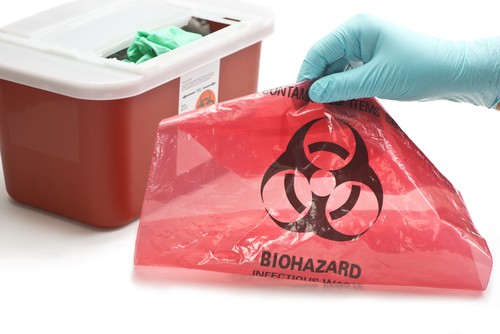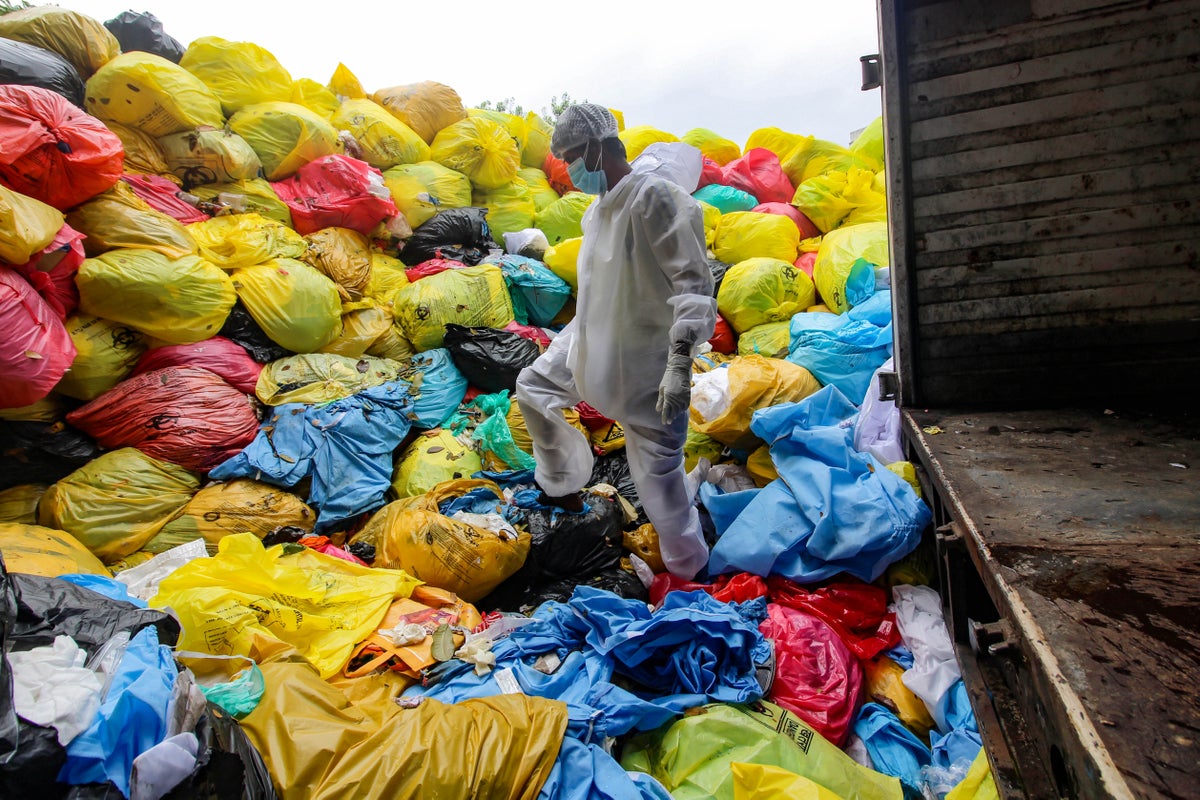Professional Medical Waste Disposal Service: Guarding Your Center and Area
Wiki Article
Guaranteeing Safe Handling and Disposal of Medical Waste
Making sure risk-free handling and disposal of medical waste is of paramount relevance in medical care settings. Inappropriate administration of medical waste can pose substantial risks to the setting, public health and wellness, and healthcare employees. In this intro, we will certainly discover the significance of proper clinical waste management, the risks linked with incorrect handling and disposal, as well as the standards and approaches that can be executed to ensure its risk-free disposal.Significance of Correct Medical Waste Administration
Appropriate clinical waste administration is of utmost relevance in making sure the security and well-being of health care professionals, individuals, and the public. Clinical waste refers to any kind of waste produced by medical care facilities throughout the medical diagnosis, treatment, or immunization of human beings or pets. This waste can pose severe health and wellness risks otherwise managed and dealt with properly.
One of the key reasons correct medical waste administration is crucial is to protect against the spread of contagious illness. Clinical waste, such as used needles, polluted dressings, and organic products, can bring dangerous pathogens. If not dealt with and disposed of properly, these pathogens can be transferred to health care workers, clients, waste handlers, and even the basic public, leading to the prospective break out of conditions.
In addition, correct medical waste administration aids shield the setting - medical waste removal service. Medical waste consists of unsafe products, consisting of chemicals, drugs, and contaminated materials. When not managed appropriately, these substances can contaminate dirt, water bodies, and the air, posturing a significant threat to communities and public health
Additionally, effective clinical waste monitoring ensures conformity with international criteria and neighborhood laws. Federal governments and governing bodies have actually established guidelines and procedures to guarantee the risk-free handling, storage space, transport, and disposal of medical waste. Complying with these guidelines is important to avoid lawful consequences and maintain the reputation and integrity of health care facilities.
Risks of Improper Handling and Disposal

Patients can additionally be exposed to these infectious illness if medical waste is not effectively thrown away. For example, if polluted needles or various other sharps are not taken care of in marked puncture-proof containers, they may accidentally prick patients, leading to potential infections. If medical waste is not set apart appropriately, there is a danger of cross-contamination between different types of waste, further increasing the opportunities of illness transmission.
Incorrect disposal of clinical waste can also have destructive results on the atmosphere and the general public. If medical waste is not treated and gotten rid of correctly, it can infect water resources, soil, and air, resulting in the spread of contaminants and diseases. This can have lasting repercussions on ecosystems and public wellness.
Guidelines for Safe Handling of Medical Waste
Implementing efficient protocols for the risk-free handling of medical waste is important in making certain the defense of health care experts, patients, and the basic public. These guidelines are crucial in decreasing the dangers connected with the handling and disposal of medical waste, such as infections, injuries, and environmental air pollution.First and primary, healthcare centers must develop a comprehensive waste administration plan that follows neighborhood, national, and worldwide laws. This plan must consist of clear guidelines on waste segregation, product packaging, transportation, labeling, and storage. It is crucial to divide different kinds of waste, such as sharps, transmittable products, pharmaceuticals, and non-hazardous waste, to avoid cross-contamination and advertise risk-free disposal.
Additionally, health care workers have to receive complete training on appropriate waste handling strategies. They must be educated on the prospective dangers of clinical waste, the appropriate use of personal safety tools (PPE), and the right procedures for managing, transporting, and taking care of different types of waste.
Additionally, medical care centers need to regularly keep track of and investigate their waste administration methods to make sure conformity with guidelines. This includes performing normal inspections, reviewing waste handling procedures, and giving responses and training to team member.
Effective Approaches for Garbage Disposal
To make certain the secure handling and disposal of clinical waste, it is necessary to use reliable approaches for waste disposal. Medical waste can position significant risks to public wellness and the atmosphere if not dealt with and gotten rid of appropriately. As a result, health care facilities and waste management organizations have to apply proper methods to mitigate these risks.One efficient technique for garbage disposal is segregation. It involves dividing different types of clinical waste based on their qualities. Partition permits the appropriate treatment and disposal of each waste group, decreasing the possibility for contamination or damage. Medical care centers ought to give clear guidelines and training to employee on just how to segregate waste correctly.

Moreover, medical care facilities ought to team up with certified waste administration business to guarantee correct disposal of clinical waste. These firms have the competence and tools called for to safely get rid of and manage of clinical waste in conformity with laws and finest methods.
Training and Education for Health Care Professionals
Healthcare professionals play a vital function in making certain the secure handling and disposal of clinical waste with extensive training and education. It is vital for health care suppliers to have a deep understanding of the potential risks related to medical waste and the correct methods for its administration. By getting proper training, health care experts can reduce the potential transmission of transmittable illness, avoid environmental contamination, and protect both themselves and the general public.
Additionally, training programs should stress the use of personal protective tools (PPE) and appropriate hand hygiene techniques when taking care of clinical waste. medical waste disposal. Medical care professionals must recognize how to properly go dispose and utilize of PPE to secure themselves from potential direct exposure to dangerous products. They need to additionally be educated on the relevance of normal handwashing and the proper use of hand sanitizers to lessen the spread of transmittable conditions
Continuing education and routine updates on clinical waste monitoring techniques are essential for health care specialists. As standards and laws progress, it is essential to keep doctor notified about any kind of changes in procedures and ideal techniques. This will ensure that they stay updated and preserve a high requirement of safety and security in disposing and handling of medical waste.
Final Thought
In final thought, proper handling and disposal of clinical waste is vital to make sure the safety and security of healthcare specialists, individuals, and the atmosphere. By adhering to these techniques, we can reduce the possible dangers linked with medical waste.Clinical waste refers to any type of waste produced by medical care centers throughout the diagnosis, therapy, or immunization of pets or humans. If clinical waste is not segregated correctly, there is a threat of cross-contamination between various types of waste, more boosting the chances of illness transmission.
It is vital to separate various types of waste, such as sharps, transmittable materials, drugs, and non-hazardous waste, to prevent cross-contamination and advertise safe disposal. WasteX Medical Waste Disposal.
To guarantee the secure handling and disposal of clinical waste, it is necessary to use reliable techniques for waste disposal. Furthermore, medical care facilities ought to develop a normal waste collection and transportation routine to protect against waste buildup and lessen the threat of crashes or contamination.
Report this wiki page